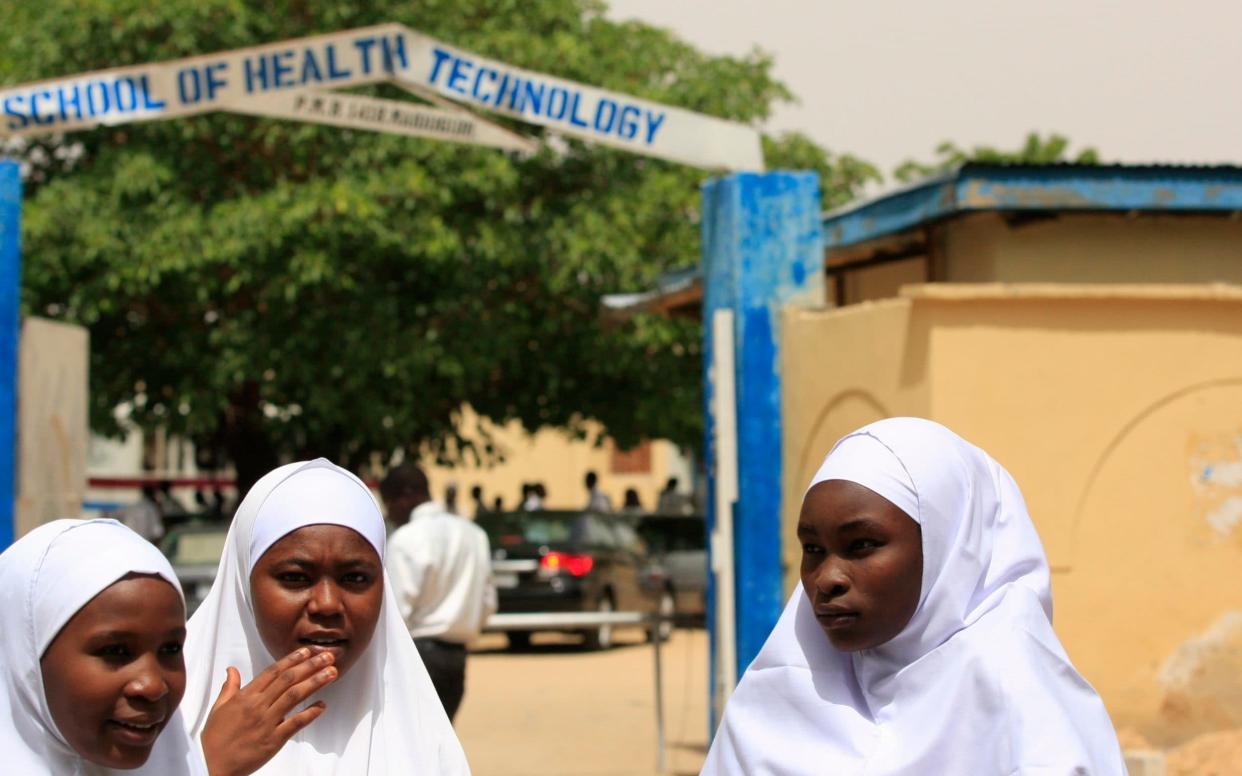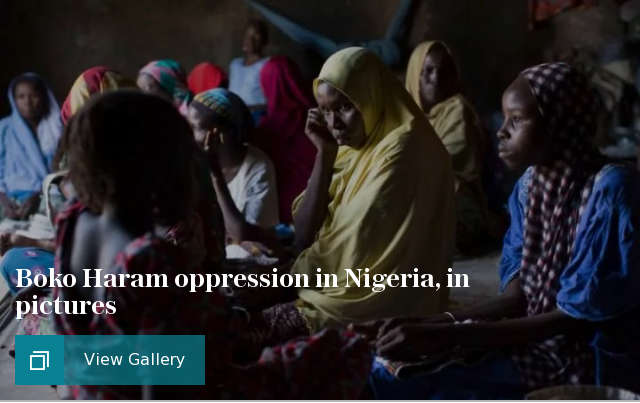Boko Haram girls were not freed in heroic mission after all, Nigerian officials admit

Nigerian officials have apologised after falsely claiming to have staged a dramatic rescue of a group of schoolgirls taken in a mass abduction by Boko Haram on Monday night.
Officials in northern Yobe State had claimed on Wednesday to have rescued at least 50 of the girls, in what they described as a "gallant" mission by the Nigerian army.
But late on Thursday night, they told families of the missing girls that there had in fact been no rescue at all, saying that the claims had been based on "unreliable" information from the security forces.
"We have now established that the information we relied on to make the statement was not credible," said Yobi state spokesman Abdullahi Bego. "The Yobe State government apologises for that."
The admission came amid claims from parents that four days after the initial kidnapping in the town of Dapchi, more than 100 girls remain unaccounted for. At least five parents who were present fainted with the shock upon being told at an official briefing that their daughters were still missing after all.

One parent, Kundiri Alhaji Bukar, told BBC Hausa language service: ''[The governor] said soldiers were dispatched but the military commander told him they could not locate the girls with the Boko Haram militants. He said no-one is really sure whether the girls were taken away by Boko Haram. But we on our part, we believe Boko Haram abducted the children."
The backtracking by the Yobe state officials comes amid growing concerns about the government's handling of the incident. When reports of the attack on the school first surfaced earlier this week, officials initially claimed there had been no abductions at all, and that the missing girls had simply fled to surrounding villages.
Critics have drawn comparisons with the government's handling of the notorious Chibok school abduction case in 2014, where officials likewise made a series of denials and contradictory statements before admitting that some 276 children had gone missing.
As of Friday morning there was still no solid information on the number of girls believed to be missing. While some are thought to have been abducted, others may have fled to safety in surrounding villages and simply not yet contacted their parents. Mobile phone reception is limited in much of Nigeria's remote rural north.

On Wednesday, government officials told the Reuters news agency that around 50 girls were still missing. But one parent, Bashir Manzo, told the Associated Press news agency that parents had presented the state governor, Ibrahim Gaidam, with a list of 101 missing children at Thursday's official briefing.
“[Mr Gaidam] told us the girls have not been found and we should continue to pray for their safe return,” another parent, Rabiu Sani, told the AP.
The flow of official misinformation over the case is likely anger President Muhamamdu Buhari, who was critical of his predecessor Goodluck Jonathan's handling of the Chibok case. Earlier this week, he despatched a team of ministers to the area in an attempt to demonstrate that he was responding quickly to the situation.
“I share the anguish of all the parents and guardians of the girls that remain unaccounted for,” Mr Buhari tweeted on Wednesday evening. “I would like to assure them that we are doing all in our power to ensure the safe return of all the girls.”

 Yahoo News
Yahoo News 
